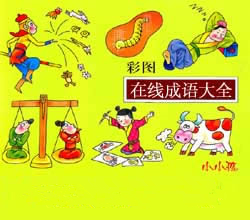英文读后感-《汤姆索亚历险记》读后感
I believe that one of the factors that makes a piece of literature or even a movie a masterpiece is how well the reader can relate to the story. This is definitely a book everyone can relate to.
The Adventures of Tom Sawyer is a literary masterpieces, written in 1876 by the famous author Mark Twain. Tom Sawyer is a mischievous young boy who lives in the small town on the Mississippi River called St. Petersburg. The story line is simple, the book reads like a biography or a memoir of a summer in Tom Sawyer's life.
Tom Sawyer seems to be the precursor of and the template for misfit kids such as Dennis the Menace, Malcolm in the Middle, and Calvin and Hobbs. What makes this story great is that Tom Sawyer represents everything that is great about childhood. The book is filled with Tom's adventures playing pirates and war with his friend Joe Harper. Tom has a trusted friend, Huck Finn, who few of the adults approve of. The book is filled with ideas of how the world works, such as how pirates and robbers work, that are so innocent, they could only come from a child. It is a story filled with action, adventure, ingenious ideas, love, and schoolyard politics. The whole story is seemingly a complication of what people did or wish they did during their childhood.
The book is a little difficult to read at first. Personally, it takes me a little while to get used to the 19th century dialect in the book. Other than referring to persons of African decent in derogatory terms (which I'm sure uses terms even young children already know), the book would be an enjoyable read for people of all ages. I highly recommend this book for anyone looking to feel young again, if just for a few hundred pages.
相关作文: 学溜冰、冬天的礼物、关于体检的作文、电脑的诱惑、记2012年的最后一天、给大家推介一本书、夏天真热、一堂有趣的科技课、可怕的天气、心爱的口琴热门作文成语素材
- 分我杯羹 羹:肉汁。楚、汉相争时,刘邦答项羽的话。比喻从别人那里分享一分利益。
- 风不鸣条 和风轻拂,树枝不发出声响。比喻社会安定。
- 阿鼻地狱 阿鼻:梵语的译音,意译为“无间”,即痛苦无有间断之意。常用来比喻黑暗的社会和严酷的牢狱。又比喻无法摆脱的极其痛苦的境地。
- 匪夷匪惠 夷:殷末周初的伯夷;惠:春秋时鲁国的柳下惠。既不是伯夷,又不是柳下惠;不具备这两位贤人的品德。形容才德不高而又驾驭的人。
- 拔宅上升 拔:拔起;宅:住宅。古代传说修道的人全家同升仙界。
- 把玩无厌 拿着赏玩,不觉厌倦。
- 飞沙走砾 沙:沙土;砾:小石块。沙土飞扬,小石块滚动。形容风势很猛。
- 诽誉在俗 诽:指诽谤;誉:赞扬;俗:风气、习惯。诽谤或赞扬在于当时的风习。后来引申指风气、习惯的作用非常大。
- 背盟败约 背:违背。盟、约:誓约。败:败坏。指撕毁。背叛誓言,撕毁盟约。
- 分毫不爽 比喻没有丝毫差错。
- 飞黄腾达 飞黄:传说中神马名;腾达:上升,引伸为发迹,宦途得意。形容骏马奔腾飞驰。比喻骤然得志,官职升得很快。
- 兵戎相见 兵戎:武器。以武力相见。指用战争解决问题。
- 擘肌分理 擘:分开;理:肌肤的纹理。比喻分析事理十分细致。
- 肥马轻裘 裘:皮衣。骑肥壮的马,穿轻暖的皮衣。形容阔绰。
- 不二法门 不二:指不是两极端;法门:佧行入道的门径。原为佛家语,意为直接入道,不可言传的法门。后比喻最好的或独一无二的方法。
